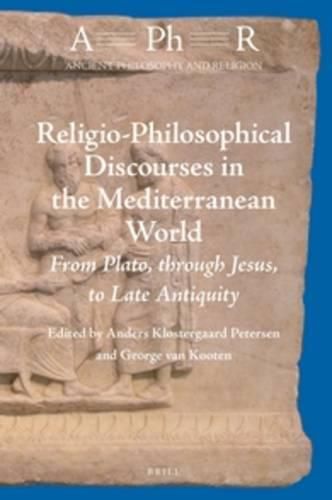Readings Newsletter
Become a Readings Member to make your shopping experience even easier.
Sign in or sign up for free!
You’re not far away from qualifying for FREE standard shipping within Australia
You’ve qualified for FREE standard shipping within Australia
The cart is loading…






This first volume of the new Brill series Ancient Philosophy & Religion is a collection of articles by scholars of Classics, Ancient Philosophy, and Ancient Judaism and Early Christianity. The articles are based on papers presented at two colloquia on the interface between Ancient Philosophy and Religion at the universities of Aarhus and Cambridge. They focus extensively on Platonic philosophy and piety and sketch an emerging religio-philosophical discourse in ancient Judaism (both in the Sibylline Oracles and 4 Maccabees). Furthermore, this volume studies Seneca’s religio-philosophical understanding of ‘consolation’, compares early depictions of Jesus with those of ancient philosophers, and, finally, reconsiders responses of pagan philosophers to Christianity from the second century to Late Antiquity.
$9.00 standard shipping within Australia
FREE standard shipping within Australia for orders over $100.00
Express & International shipping calculated at checkout
This first volume of the new Brill series Ancient Philosophy & Religion is a collection of articles by scholars of Classics, Ancient Philosophy, and Ancient Judaism and Early Christianity. The articles are based on papers presented at two colloquia on the interface between Ancient Philosophy and Religion at the universities of Aarhus and Cambridge. They focus extensively on Platonic philosophy and piety and sketch an emerging religio-philosophical discourse in ancient Judaism (both in the Sibylline Oracles and 4 Maccabees). Furthermore, this volume studies Seneca’s religio-philosophical understanding of ‘consolation’, compares early depictions of Jesus with those of ancient philosophers, and, finally, reconsiders responses of pagan philosophers to Christianity from the second century to Late Antiquity.